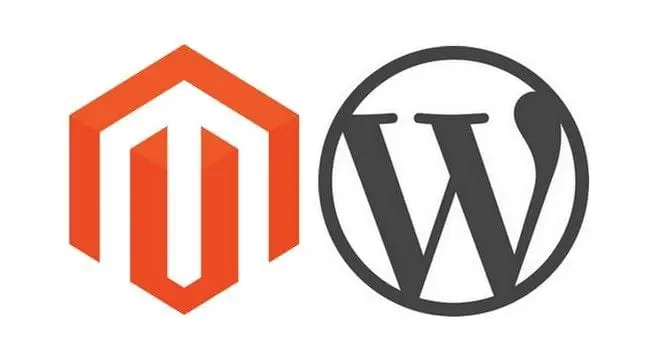Whether you are looking to set up your first eCommerce store or upgrade to a more robust platform, it is likely that you are considering Magento as one of your options. Magento is easily one of the best eCommerce platforms available, powering over two hundred thousand websites including the likes of Nike, Rosetta Stone and Samsung.
If you are new to Magento, what you may not know is that there are actually three versions of the software available, so here we will mainly explore Magento Community vs Enterprise Edition. The other is Magento Go, a solution for small businesses; however this platform will be shutting down in February 2015. The two versions which are currently available are Magento Community and Magento Enterprise and these are the editions we are going to focus on and compare in this article.
By the end, we hope you have a better understanding of the differences between the two platforms and can use your newfound knowledge to help you decide which is the best edition for your ecommerce business.
The differences between the Magento Community and Enterprise Editions
The first public beta version of Magento was released in August 2007 and following its success the company went on to launch the Magento Community Edition the following March under the open source OSL 3.0 license.
The Magento Community Edition was a huge hit with eCommerce businesses all over the world, with even some of the largest Fortune 500 companies choosing it to power their websites.
However the Magento Community Edition was only ever aimed at mid-market merchants and the company soon realised that larger and more established eCommerce businesses required additional features and better support. This is what led them to developing and launching the Magento Enterprise Edition in 2009.
Both the Magento Community and Enterprise Editions are excellent pieces of quality software used by reputable businesses all over the world, however there are key differences between the two, some of which we have outlined below.
1. Cost
The Magento Community Edition is a piece of open source software, which means it is free to download, install and modify. Merchants do not have to pay Magento a single penny to use the software and there are no registration fees or other commissions to pay.
The Magento Enterprise Edition actually shares the same basic code and features as the free Community Edition; however it has a lot more functionality to accommodate the needs of larger merchants with greater demands. Due to its extra features and official Magento support (which we will discuss further later) the Magento Enterprise Edition costs more to use.
Plans start around the $14,420 mark, with merchants required to pay their subscription fees annually. The price not only includes the advanced piece of eCommerce software, but also a Service License Agreement from Magento who promise to provide around-the-clock support.
Whilst the subscription fee may seem expensive, for large businesses that require the additional features and support and can afford to pay for them, there is the opportunity to make a quick return on investment, as this version of Magento allows for a relatively fast setup. For websites with large trading volumes the license fee is a small price to pay.
Of course cost will play a huge role in your decision to choose one eCommerce platform over another, but when choosing between Magento Community and Enterprise, you need to remember that whilst the Community Edition is free to download and modify, it’s likely you are going to need to pay a Magento developer to help you do it.
Not only that, but if you want to customise your Magento website with a theme and extensions, you are going to have to consider their costs too (unless of course you opt for the free themes and extensions available).
Magento development costs vary from one company to the next, but if you go with a certified Magento developer, your installation and customisation costs can rival those of the cheapest Magento Enterprise package.
2. Features
The Magento Community Edition is packed full of fantastic out of the box features and benefits including marketing and SEO tools, catalogue and order management, reporting and a CMS (to name a few) and it also shares some of the Enterprise Edition’s features like robust back-up, customer attribute management and return merchandise authorisation, but at a slightly weaker level. These features are more than enough for mid-market merchants, making the Community Edition a fantastic choice.
However for larger businesses that requires advanced features and functionality, Magento Enterprise is the only version that can really deliver the goods. This premium software boasts a wide range of features including advanced search capabilities, an enhanced catalogue and content management system, call centre software with assisted shopping and customer segmentation.
3. Support
Support is likely to also play a big role in your decision, so before you choose the Magento Community Edition, it is worth keeping in mind that there is no official support provided with this software.
Instead merchants can seek the advice of the Magento community via the support forum. The Magento Community is made up of web developers and merchants all over the world. Whilst these people are more than likely going to be able to answer your questions and help you with any issues you are having, you are not guaranteed a correct solution or a timescale of response.
Part of the costs associated with the Magento Enterprise Edition includes a Service Level Agreement offering Magento’s fully support. Businesses that sign up for the Enterprise Edition can benefit from around the clock support, which is provided either via email or over the phone.
Here you have to decide how much you need support. If you have an in-house web developer that has experience in using Magento or are working with a Magento Development Agency, you are unlikely to need Magento’s ‘official’ support.
If however you need your questions answering immediately and are likely to have complex queries, you may be better off choosing the Magento Enterprise package.
Video source: https://www.youtube.com/watch?v=BTEj8nfEeAk
4. Target audience
The differences in cost, features and support all come down to the fact that the two pieces of Magento software are aimed at different audiences.
Magento Community is designed for small and mid-market merchants, giving them the opportunity to benefit from a powerful ecommerce platform free of charge. The great thing about Magento Community is that it is also very scalable, meaning that it can be extended in-line with the growth of your business and your ever-changing needs and requirements.
On the other hand you have the Enterprise Edition which is aimed at larger, more established businesses that require advanced features and around the clock support. Whilst it costs significantly more, it is still likely to provide an excellent return on investment for larger eCommerce businesses that can afford the annual subscription.
The truth is that both platforms are beneficial in different ways to different businesses. The effectiveness of both Community and Enterprise all comes down to the user’s specific needs, requirements and budget.

A selection of our older posts, written by various members of the team between 2015 to 2021.








0 Comments